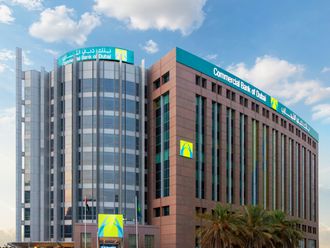Responses to the recent CFA Institute’s Middle East Societies survey on market sentiment showed that nearly one in five regional members believe a single capital market will help stimulate investment in the Middle East and North Africa (Mena).
While the region may not seem to have much in common with an EU mired in financial crisis rather than revolution, Europe could offer a template that may ultimately lead to sustainable regional prosperity and security.
Europe’s experience has shown that the ability of a region to evolve successfully from conflict and political upheaval — rather than slumping into a dark period of uncertainty — rests in good part on the ability of its people to prosper economically.
As in the post-Second World War Europe, from which the European Union emerged, the social and economic challenges facing Mena are enormous, with no country large enough or wealthy enough to achieve its long-term economic ambitions alone.
Several proposals have been put forward, including an Arab Marshall Plan funded by the IMF, to allow governments to spend their way to prosperity, but the lack of credible institutions and transmission mechanisms render such plans ineffective.
Moreover, according to the UN Development Programme, Arab countries have a particularly poor record at delivering improvements in living standards. This is largely due to structural inefficiencies that lead to significant economic leakage, archaic regulations that stifle competition and relatively low levels of international trade.
Some of the barriers to economic growth have been lowered, notably in the GCC, which has been reasonably successful with its customs union. But the benefits have been limited due to the homogenous nature of its hydrocarbon economies, small population and the lack of meaningful industrial diversification required to make it a viable trading bloc.
Trade is important because it enhances efficiency through specialisation when markets are large enough to yield economies of scale. Larger markets also encourage the growth of big companies that are generally more productive and able to pay higher wages.
Yet, according to the Arab Trade Financing Programme, the share of inter-Arab exports to total Arab exports was just 8.6 per cent in 2010, up from 8.5 per cent in 2005. Over the same period the ratio of inter-Arab imports actually fell from 12.6 per cent to 11.8 per cent.
While the GCC by itself has an estimated population of less than 41 million, the number swells to more than 350 million when other members of the Arab League are added and soars to more than 509 million when Turkey and Iran, natural trading partners, are included.
An economic community of this stature would stand alongside China and India as a viable economic powerhouse and one of the largest single markets, with an aggregate GDP of more than $5 trillion (Dh18 trillion).
The solution to long-term economic challenges across the region is not in throwing money at infrastructure projects or in extending subsidies and benefits. It is in liberating the economic potential of the region, by encouraging the private sector through business deregulation, entrepreneurship and education.
There are already a number of multilateral economic initiatives across the region but they have been mostly ineffective in achieving their stated goals. Many of these lack the specific mandate or political authority to set a binding economic agenda with a clearly defined path toward open markets and free trade.
An economic community of Middle East nations would start off with more common heritage, culture and language than the war-torn and deeply divided continent that evolved into the EU.
For that dream to become reality, technocrats need to be given the power to establish a true single market with shared policies on agriculture, transport, trade and industry, along with a resolve to apply far-reaching deregulation and the creation of a robust legal framework for cross-border investment.
Breaking down the barriers to trade and investment may hurt entrenched vested interests in the short term but will allow the most efficient companies to prosper, lower the cost of goods and services, raise the standards of living, reduce unemployment and improve relations among increasingly interdependent nations.
It is absurd that there are virtually no regional champions, in banking or retail for example, when it is abundantly clear that these sectors remain hugely fragmented across the Middle East. The absence of consolidation and scale is not due to lack of corporate ambition but because of restrictive regulation.
The Middle East stands on the cusp of demographic, social and economic development that will create opportunities, or alternatively chaos. The choice to shape tomorrow must be made today.
— The writer is a CFA charter holder and a Member of CFA Society Bahrain











